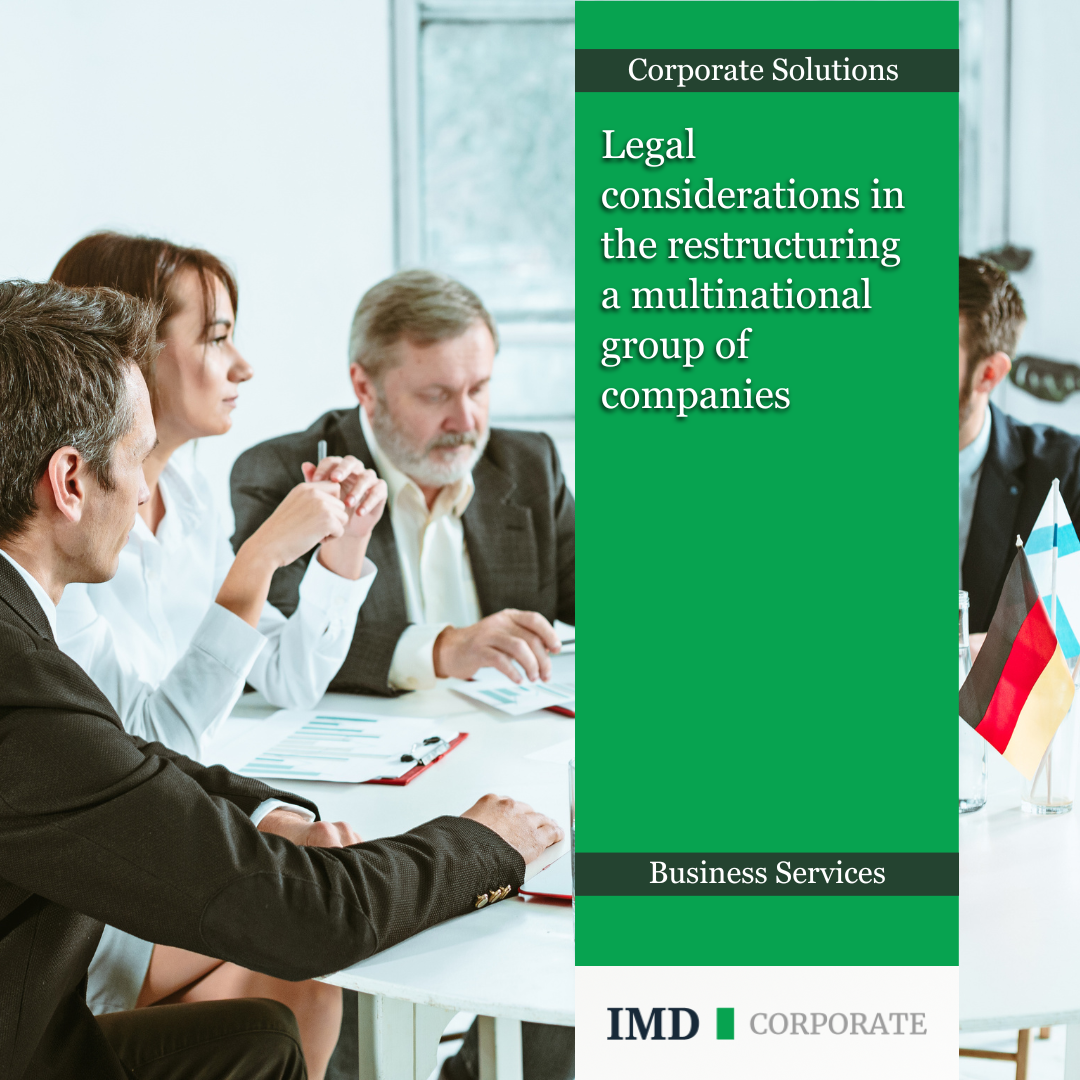
The case in point involves a longstanding client of IMD Corporate, with whom we have maintained a professional relationship for nearly a decade. The client recently undertook a significant restructuring of their company, which has operations across various areas, including the United Kingdom. This restructuring involved the creation of a UK-based holding company to oversee the group’s companies. This analysis delves into the legal complexities surrounding this restructuring, focusing on compliance with tax legislation, regulatory requirements across different jurisdictions, internal governance, and future planning for share distribution among key management personnel and investors.
The creation of a UK-based holding company to preside over and govern the group’s companies’ affairs introduced a layer of complexity due to the diverse legal and tax considerations across the areas where subsidiaries are located. This necessitated a tailored approach to the drafting of the articles of association and other governance documents, navigating the nuances of other jurisdictional legal considerations. The objective was to ensure these documents were not only in compliance with the UK’s legal framework but did not infringe the regulatory and tax regulations of all relevant jurisdictions where the group has a presence.
Articles of Association (and equivalent constitutional documents in other jurisdictions) form a fundamental part of a company’s constitution in many jurisdictions around the world, including the United Kingdom.
Considering our case, a primary challenge was the need to align these documents with the client’s objectives for the restructuring, which included enhanced governance mechanisms and strategic positioning for future growth, and at the same time adhere to various legislative regimes.
To navigate these complexities, collaboration with legal professionals in each jurisdiction was essential. This multinational legal coordination ensured that the restructuring was executed in a manner compliant with all applicable laws, thereby mitigating risks associated with non-compliance, such as financial penalties and operational disruptions.
One component of the restructuring strategy was the client’s intention to issue redeemable shares to key management personnel and investors. This forward-looking plan required careful consideration of the tax implications associated with share distribution, especially considering the potential for higher tax liabilities for recipients in certain jurisdictions. The strategic distribution of shares needed to be meticulously planned to ensure tax efficiency and compliance with all relevant tax laws.
The legal framework had to be designed to accommodate the issuance of shares in a manner that minimised tax liabilities while supporting the company’s long-term growth objectives. This involved intricate planning and the drafting of governance documents that provided the flexibility needed to navigate the complexities of international tax laws.
An important aspect of the restructuring was the maintenance of control over key management decisions by the founding shareholders, despite future changes in shareholding. This necessitated a careful drafting of the governance documents to ensure that the authority of the founding shareholders was preserved. The challenge was to balance the need for growth and investment with the founders’ desire to retain control over strategic decisions.
The legal documentation had to reflect the unique governance structure, ensuring that the founding shareholders retained the ability to guide the company’s strategic direction. This required a detailed understanding of corporate governance principles, together with the legal constraints in the UK and other jurisdictions, and the ability to tailor these principles to meet the specific needs of our client.
The restructuring of the client’s multinational group presents a compelling case study on the legal complexities associated with corporate reorganisations across multiple jurisdictions. It demonstrates the critical role of legal expertise in ensuring compliance with diverse regulatory landscapes, planning for future growth, and maintaining strategic control over corporate governance. This case also underscores the importance of collaboration among legal professionals across different legal systems to achieve a cohesive and compliant corporate structure.
Key takeaways from this case include the importance of detailed planning and legal analysis in corporate restructuring, the necessity of cross-jurisdictional legal cooperation, and the strategic considerations involved in structuring share distributions and governance mechanisms.
This analysis serves as a testament to the comprehensive legal support provided by IMD Corporate, emphasising our commitment to addressing the multifaceted legal needs of our clients in a rapidly changing global business environment.
This article is for general information only and does not constitute legal or professional advice. Please note that the law may have changed since this article was published.